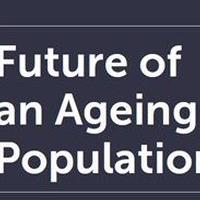By 2014, the average age of the UK population exceeded 40 for the first time. Approximately 75% of UK population growth by 2040 was projected to be in the 60 and over age group, and the number of those aged 75 and over was expected to nearly double to 14 million[i]. With these figures in mind, the UK Government Office for Science commissioned a Foresight Review on the Ageing of the UK Population. A multi-disciplinary Expert Committee of British academics[ii] was appointed, and over the next two and a half years extensive demographic projections and modelling[iii], over 100 hours of expert meetings and 22 scientific evidence reviews[iv] were undertaken, exploring the multi-faceted impact of the UK’s age-structural change.
The academic Committee determined to assess the impact of both the increase in the number and proportion of older people and the increase in the average age of the population. These two demographic trends – increasing longevity and age structural change – will have major and interrelated impacts on UK society. For not only are UK individuals living longer, they are doing so within a population which is in itself growing older. Rising life expectancy, and the growth in the number and proportion of oldest old, will increase demands for the resources needed to support a potential lengthening of dependency and frailty at the end of life. But the shift from a predominantly young to predominantly older population raises concerns over the ability of nations to finance and re-configure the social security and long term health and social care which are required to support this growing number and percentage of older dependents. A third issue is the reconfiguration of social institutions to address intergenerational fairness that is fairness and equity within and between different generations as population age.
The focus of evidence was on the increased need for financial and care support for longer lives at a time when there may be fewer workers in the population, and thus the future of work, education, housing, families, connectivity (both physical and digital) and infrastructure all needed to be considered within an ageing population framework. The challenge was how to make the UK more resilient to these demographic changes, and in particular how to maintain wellbeing across the life course of longer-lived individuals, and how to distribute resources within this new demographic.
The Foresight Report concluded that the success and resilience of the UK will be determined by its ageing population, and specifically the extent to which individuals of all ages cope with increased risk and responsibility for their ever lengthening lives. In particular:
- Issues relating to an ageing population cannot be addressed in silos.
- Most domestic policy issues will be fundamentally affected by the ageing population.
- Interventions to make ageing a success are required throughout the life course
- A regional lens is important for understanding the impact of ageing
However, another challenge facing the academic Committee was how to ensure that the message reached the policy makers responsible for future UK policy making in these diverse areas. We did not want this to be another academic tome consigned to university library shelves! Working closely with a committed team of civil servants in the Government Office for Science, the following procedure was tried, tested and refined. This was to be “co-design” between academics and policy makers. The question we attempted to address was “How can government make progress in such an interwoven policy area, which in turn is set upon a complex evidence base?” First step was mutual recognition of the importance of a scientific approach to evidence gathering. Then came synthesis – getting beyond the evidence of what is happening, and into what this means for Government. The evidence was broken down into manageable components, producing key data and implications in an accessible way for policy makers, focussing on the visual (infographic cards) and personal (future personas). This was then presented to over 100 civil servants (policy owners) in a series of cross-government work shop environments, thus allowing policy makers to bring their knowledge of policy making and politics to create a more vivid set of ideas for addressing the challenges and opportunities of an ageing population. Crucial was the buy-in and thus engagement of the centre of Government – in this case the Cabinet Office who report directly to the Prime Minister. This developed into a mutually supportive process: the Central Government trusted that there was a credible plan to develop solutions, policy owners know knew there was a senior audience for their ideas, so both engaged with confidence. Finally this process, which commenced a year before the Report’s final publication, culminated in direct feedback to the academic Committee, who were then able to consider the policy interests and insights gathered from Government’s own experts and utilised this knowledge to reframe the issues and explore new perspectives.
The result can be found at Government Office for Science (2016). Future of an Ageing Population. Foresight Report, London: Government Office for Science.
[i] ONS (2015) 2014-based population projections
[ii] https://www.gov.uk/government/groups/ageing-society-lead-expert-group
[iii] http://www.ageing.ox.ac.uk/publications/reports
[iv]https://www.gov.uk/government/collections/future-of-ageing#evidence-reviews
Population Europe (2016) Population Insights No. 05
UK Projected Longevity
Source: Leeson, G. (2014) Future prospects for longevity. Post Reproductive Health, 20 (1), 17-21
Calculations by Leeson from ONS (2015) 2014-based population projections
About the Author
Sarah Harper is Professor of Gerontology at the University of Oxford, Director of the Oxford Institute of Population Ageing and Senior Research Fellow at Nuffield College.
Comments Welcome:
We welcome your comments on this or any of the Institute's blog posts. Please feel free to email comments to be posted on your behalf to administrator@ageing.ox.ac.uk or use the Disqus facility linked below.
Opinions of the blogger is their own and not endorsed by the Institute
Comments Welcome: We welcome your comments on this or any of the Institute's blog posts. Please feel free to email comments to be posted on your behalf to administrator@ageing.ox.ac.uk or use the Disqus facility linked below.












